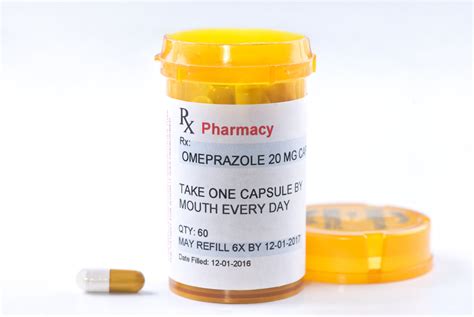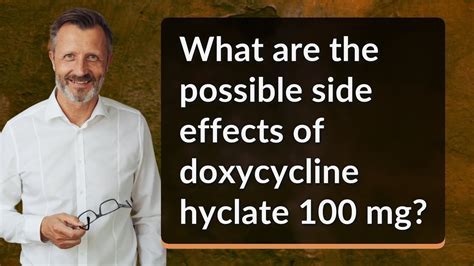Intro
Find relief from hiatal hernia symptoms with effective medication options, including antacids and proton pump inhibitors, to alleviate heartburn, acid reflux, and digestive discomfort, and discover a treatment plan for lasting hiatal hernia relief.
The importance of managing hiatal hernia symptoms cannot be overstated, as this condition can significantly impact an individual's quality of life. A hiatal hernia occurs when the upper part of the stomach bulges up into the chest through an opening in the diaphragm, leading to discomfort, pain, and difficulty swallowing. While lifestyle changes and surgical interventions are often recommended, medication plays a crucial role in providing relief from hiatal hernia symptoms. In this article, we will delve into the world of hiatal hernia medication relief, exploring the various options available and their mechanisms of action.
Hiatal hernia symptoms can be debilitating, affecting not only the physical well-being but also the mental health of those affected. The constant discomfort, bloating, and regurgitation can lead to anxiety, depression, and social isolation. Therefore, it is essential to seek medical attention if symptoms persist or worsen over time. A healthcare professional can diagnose a hiatal hernia using various diagnostic tools, including endoscopy, barium swallow, and manometry. Once diagnosed, the treatment plan may involve a combination of lifestyle modifications, medications, and, in severe cases, surgery.
The primary goal of hiatal hernia medication relief is to alleviate symptoms, reduce inflammation, and prevent further complications. Medications can help reduce acid production, neutralize stomach acid, and improve muscle tone in the lower esophageal sphincter (LES). The LES is a critical component in preventing stomach acid from flowing back into the esophagus, and its dysfunction is often associated with hiatal hernia symptoms. By targeting the underlying causes of symptoms, medications can provide significant relief, improving the overall quality of life for individuals with hiatal hernia.
Types of Hiatal Hernia Medications

There are several types of medications used to treat hiatal hernia symptoms, each with its unique mechanism of action. These include:
- Antacids: These medications help neutralize stomach acid, providing quick relief from heartburn and regurgitation.
- Histamine-2 (H2) blockers: H2 blockers reduce acid production in the stomach, decreasing the amount of acid that flows back into the esophagus.
- Proton pump inhibitors (PPIs): PPIs are the most potent acid-reducing medications, blocking the production of stomach acid at the source.
- Prokinetics: These medications enhance muscle tone in the LES, improving its function and reducing symptoms.
How Hiatal Hernia Medications Work
Each type of medication works in a unique way to alleviate hiatal hernia symptoms. Antacids, for example, contain bases such as calcium carbonate or magnesium hydroxide, which help neutralize stomach acid. H2 blockers, on the other hand, reduce acid production by blocking the histamine receptors in the stomach lining. PPIs work by inhibiting the proton pumps in the stomach lining, effectively blocking acid production. Prokinetics, such as metoclopramide, enhance muscle tone in the LES, improving its function and reducing symptoms.Lifestyle Modifications and Hiatal Hernia Medication Relief

While medications play a crucial role in managing hiatal hernia symptoms, lifestyle modifications are equally important. These modifications can help alleviate symptoms, reduce the need for medication, and prevent further complications. Some essential lifestyle modifications include:
- Eating smaller, more frequent meals to reduce pressure on the LES
- Avoiding trigger foods such as citrus fruits, tomatoes, and chocolate
- Raising the head of the bed by 6-8 inches to reduce nighttime symptoms
- Losing weight, if necessary, to reduce pressure on the stomach
- Avoiding tight clothing and bending or straining, which can exacerbate symptoms
Benefits of Combining Lifestyle Modifications with Hiatal Hernia Medication Relief
Combining lifestyle modifications with medication can provide significant benefits, including: * Improved symptom relief * Reduced need for medication * Enhanced overall quality of life * Reduced risk of complications, such as esophageal stricture or Barrett's esophagusPotential Side Effects and Interactions of Hiatal Hernia Medications

While hiatal hernia medications can provide significant relief, they can also have potential side effects and interactions. Common side effects of antacids include constipation or diarrhea, while H2 blockers can cause headaches, dizziness, or diarrhea. PPIs can increase the risk of osteoporosis, vitamin B12 deficiency, or diarrhea. Prokinetics can cause dizziness, headache, or fatigue. It is essential to discuss potential side effects and interactions with a healthcare professional before starting any medication.
Minimizing the Risk of Side Effects and Interactions
To minimize the risk of side effects and interactions, it is crucial to: * Follow the recommended dosage and administration instructions * Inform the healthcare professional about any underlying medical conditions or medications * Monitor for potential side effects and report them promptly * Regularly review and adjust the treatment plan as neededNatural Remedies and Hiatal Hernia Medication Relief

In addition to medications and lifestyle modifications, natural remedies can provide significant relief from hiatal hernia symptoms. Some natural remedies include:
- Ginger, which has anti-inflammatory properties and can help reduce inflammation
- Aloe vera, which can help soothe the esophagus and reduce inflammation
- Slippery elm, which can help protect the mucous membranes and reduce inflammation
- Probiotics, which can help regulate the gut microbiome and reduce symptoms
Benefits of Combining Natural Remedies with Hiatal Hernia Medication Relief
Combining natural remedies with medication can provide significant benefits, including: * Improved symptom relief * Reduced need for medication * Enhanced overall quality of life * Reduced risk of complicationsSurgical Interventions and Hiatal Hernia Medication Relief

In severe cases of hiatal hernia, surgical interventions may be necessary. Surgery can help repair the hernia, tighten the LES, and improve symptoms. The most common surgical procedures include:
- Laparoscopic hernia repair
- Open hernia repair
- LINX reflux management system
- Transoral incisionless fundoplication (TIF)
Benefits and Risks of Surgical Interventions
Surgical interventions can provide significant benefits, including: * Improved symptom relief * Reduced need for medication * Enhanced overall quality of life * Reduced risk of complications However, surgical interventions also carry risks, including: * Infection * Bleeding * Adhesions * Recurrence of symptomsWhat are the most common symptoms of hiatal hernia?
+The most common symptoms of hiatal hernia include heartburn, regurgitation, difficulty swallowing, and chest pain.
How can I manage hiatal hernia symptoms without medication?
+Lifestyle modifications, such as eating smaller meals, avoiding trigger foods, and raising the head of the bed, can help manage hiatal hernia symptoms without medication.
What are the potential risks and complications of hiatal hernia surgery?
+The potential risks and complications of hiatal hernia surgery include infection, bleeding, adhesions, and recurrence of symptoms.
Can natural remedies help alleviate hiatal hernia symptoms?
+Yes, natural remedies such as ginger, aloe vera, slippery elm, and probiotics can help alleviate hiatal hernia symptoms.
How can I prevent hiatal hernia symptoms from worsening?
+Preventing hiatal hernia symptoms from worsening involves maintaining a healthy weight, avoiding tight clothing, and avoiding bending or straining.
In conclusion, hiatal hernia medication relief is a crucial aspect of managing hiatal hernia symptoms. By understanding the various types of medications, their mechanisms of action, and potential side effects, individuals can make informed decisions about their treatment plan. Combining medication with lifestyle modifications and natural remedies can provide significant benefits, improving symptom relief and overall quality of life. We invite you to share your experiences and ask questions about hiatal hernia medication relief in the comments section below. Additionally, if you found this article helpful, please share it with others who may be struggling with hiatal hernia symptoms. By working together, we can provide support and resources to those affected by this condition, improving their overall well-being and quality of life.
